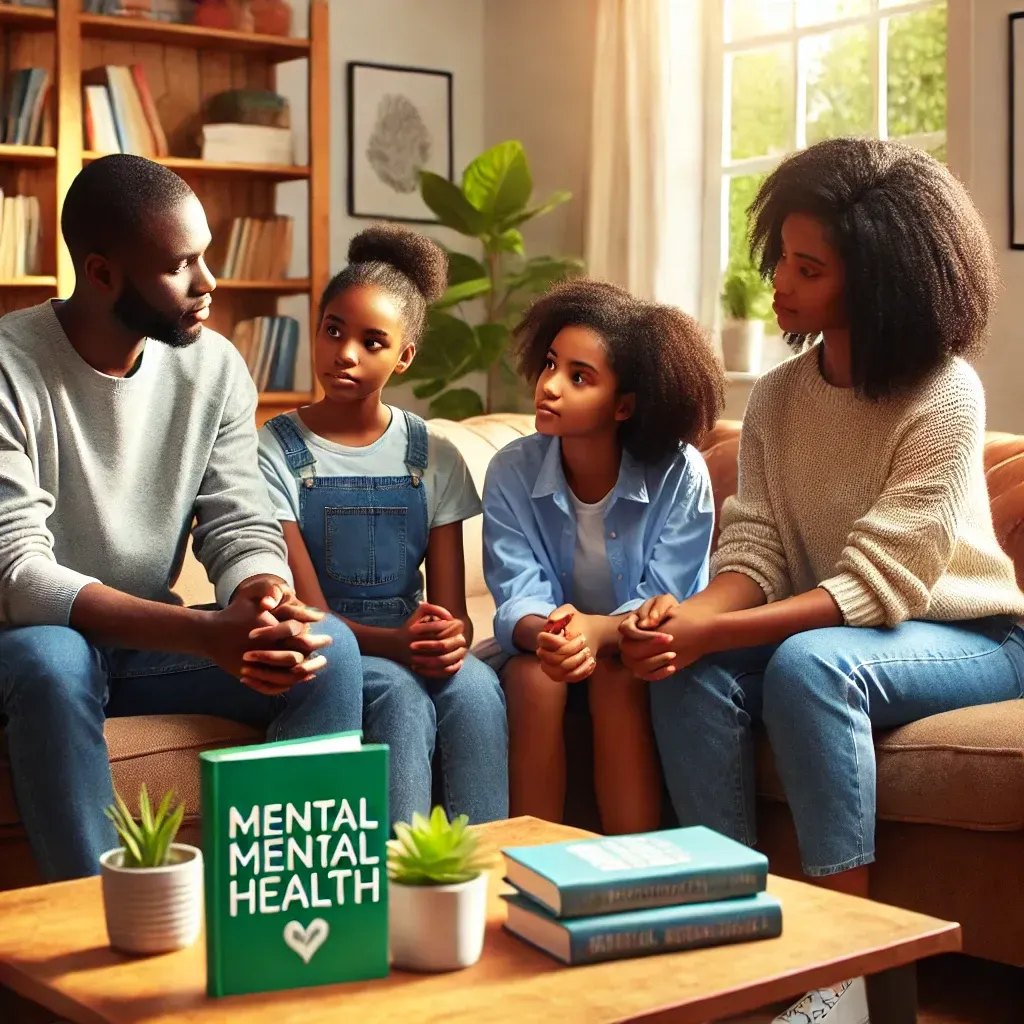
Recognizing Anxiety & Depression in Kids: A Parent’s Guide
Mental health matters—especially for children. Anxiety and depression are more common in kids than many parents realize, but recognizing the signs early can make a huge difference in a child’s emotional well-being.
As a parent, it’s important to understand the warning signs, know how to provide support, and seek professional help when needed. This guide will help you:
✅ Identify the symptoms of anxiety and depression in kids
✅ Learn the causes and triggers
✅ Find ways to support your child at home and school
✅ Know when to seek professional help

By being aware and proactive, parents can help children navigate their emotions in a healthy way and build lifelong coping skills.
🌱 Understanding Anxiety & Depression in Children
What’s the difference between anxiety and depression?
✔️ Anxiety is excessive worry or fear about future events or everyday situations.
✔️ Depression is persistent sadness, hopelessness, or loss of interest in things a child once enjoyed.
While it’s normal for kids to feel worried or sad at times, anxiety and depression become concerning when they interfere with daily life, school, or relationships.
🚨 Signs of Anxiety in Kids
Anxiety can show up in many different ways. Some kids may be outwardly nervous, while others may internalize their fears.
Common Symptoms of Anxiety:
❗ Frequent worries or fears about school, friends, or family
❗ Physical symptoms like stomachaches, headaches, or dizziness
❗ Avoidance of activities they once enjoyed
❗ Difficulty sleeping or frequent nightmares
❗ Irritability or clinginess
❗ Trouble concentrating in school
❗ Excessive perfectionism (fear of making mistakes)
❗ Panic attacks (racing heart, shortness of breath, feeling out of control)
Types of Anxiety Disorders in Children:
🔹 Generalized Anxiety Disorder (GAD) – Constant worry about everyday things.
🔹 Separation Anxiety – Extreme fear of being apart from parents.
🔹 Social Anxiety – Fear of speaking, interacting, or being judged by others.
🔹 Panic Disorder – Sudden episodes of intense fear or panic attacks.
🔹 Phobias – Intense fear of specific objects or situations (e.g., heights, dogs, storms).
If your child frequently experiences these anxiety symptoms for weeks or months, it may be time to seek support.
⚡ Signs of Depression in Kids
Depression can be harder to recognize in children because they may not express their feelings clearly. Instead of sadness, depression in kids often looks like irritability, anger, or withdrawal.
Common Symptoms of Depression:
⚠️ Persistent sadness, hopelessness, or irritability
⚠️ Loss of interest in activities they used to enjoy
⚠️ Low energy or fatigue (seems “tired all the time”)
⚠️ Changes in appetite (eating too much or too little)
⚠️ Sleeping too much or too little
⚠️ Frequent stomachaches or headaches (with no medical reason)
⚠️ Difficulty concentrating in school
⚠️ Low self-esteem or negative self-talk
⚠️ Withdrawal from family and friends
⚠️ Self-harm or thoughts of suicide (seek immediate help)
If your child shows several of these signs for more than two weeks, it’s important to take action and talk to a professional.
🔎 What Causes Anxiety & Depression in Kids?
There’s no single cause of mental health struggles, but common triggers include:
🌍 Environmental Factors:
✅ Major life changes (moving, divorce, new school)
✅ Family stress (financial difficulties, arguments, loss of a loved one)
✅ Bullying or social pressures
✅ School stress (high expectations, fear of failure)
🧬 Biological Factors:
✅ Genetics (family history of anxiety or depression)
✅ Brain chemistry imbalances
✅ Chronic health conditions
💡 Personality & Thought Patterns:
✅ Perfectionism – Fear of making mistakes or disappointing others.
✅ Negative thinking – Tendency to assume the worst in situations.
Understanding the root cause can help parents provide better support.
💙 How to Support a Child with Anxiety or Depression
Parents play a crucial role in helping children manage their emotions. Here are effective strategies to support your child’s mental health:
🗣️ 1. Encourage Open Conversations
✔️ Let your child know it’s okay to talk about their feelings.
✔️ Avoid saying “Don’t worry” or “Just be happy.” Instead, validate their emotions.
✔️ Use phrases like:
“I see that you’re feeling nervous. Want to talk about it?”
“It’s okay to feel sad sometimes. I’m here for you.”
📅 2. Create a Daily Routine
✔️ Predictability helps kids feel safe and secure.
✔️ Set consistent wake-up, meal, and bedtime schedules.
✔️ Encourage regular movement (exercise is a natural mood booster).
😌 3. Teach Relaxation Techniques
✔️ Deep Breathing: Breathe in for 4 seconds, hold for 4 seconds, exhale for 4 seconds.
✔️ Mindfulness: Help kids focus on the present moment.
✔️ Progressive Muscle Relaxation: Tense and relax different muscle groups.
📝 4. Encourage Healthy Outlets for Emotions
✔️ Journaling – Writing down feelings can reduce stress.
✔️ Art or music therapy – Drawing or playing music can be calming.
✔️ Outdoor time – Nature has a powerful effect on mental health.
📱 5. Set Healthy Technology Boundaries
✔️ Limit social media use – Too much screen time can increase anxiety.
✔️ Encourage face-to-face interactions – Help kids develop real-life friendships.
💡 6. When to Seek Professional Help
If your child’s anxiety or depression persists for more than two weeks and affects daily life, consider:
✔️ Talking to a pediatrician
✔️ Seeking a therapist or counselor
✔️ Joining a support group for parents
Mental health is just as important as physical health, and seeking help is a sign of strength, not weakness.
🌟 Help Your Child Thrive Mentally & Emotionally!
Every child deserves to feel safe, supported, and emotionally healthy.
📚 Download Mary’s Mental Health—a digital book designed to help kids understand their emotions, develop coping skills, and feel more confident about their mental well-being.
🔗 Get your instant download now:
👉 https://childrentowealth.com/product-details/product/marysmentalhealth
💡 Empower your child with the tools they need to navigate their emotions and build lifelong resilience!
